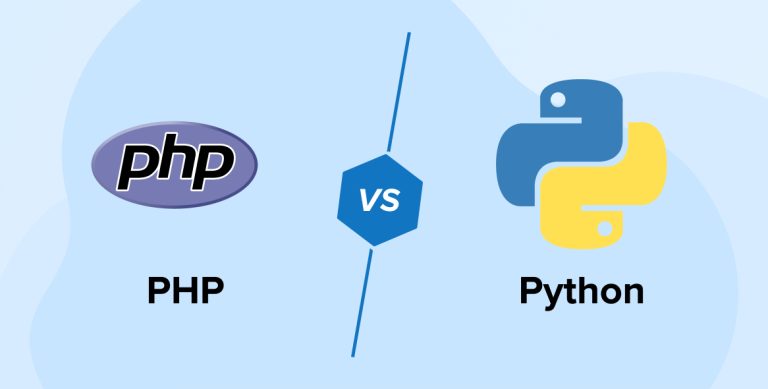
Even with the advent of new disruptive technologies in web development, PHP and Python remain the most popular and widely used programming languages. However, deciding which one is a better option between PHP or Python can be confusing.
Many are compelled to collaborate with a reliable PHP development company as the language is already empowering millions of websites on the internet today. But Python has also proved its capabilities in developing high-end web solutions.
So, if you can’t decide which one is better suited for your project then this article on PHP vs Python is for you. It discusses the features, pros, and cons of both contenders, followed by a detailed comparison across various factors. The article also mentions specific scenarios when developers prefer to use one over another. So, let’s get started.
1. What is PHP?
PHP is an open-source scripting language initially released in June 1995 by Rasmus Lerdorf. Originally named Personal Home Page, PHP is now short for Hypertext Preprocessor. Today, more than 244+ million websites on the internet are powered by PHP.
PHP is largely used for simplifying the development of dynamic websites and web apps, database apps, and eCommerce apps. Therefore, it is ideal for pages that require dynamic content. In the LAMP stack, PHP is used along with Linux, Apache, and MySQL as one of its main components.
As it supports multiple databases, PHP code can be easily interpreted and executed with any data type. Additionally, you can easily integrate with HTML. This programming language offers various kinds of resources including functions and code commands. There are two major applications of PHP; server-side scripting and command-line scripting.
PHP is a very user-friendly language. It also enjoys the support of a large and vibrant community.
2. PHP Features
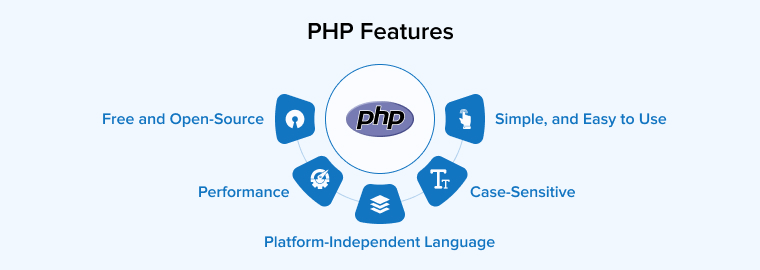
Some of the most notable and distinguishing features of the PHP programming language include:
2.1 Free and Open-Source
PHP is an open-source programming language. Hence, there isn’t much difficulty in acquiring a license to use it. And you don’t have to pay for anything.
2.2 Simple, and Easy to Use
Having a syntax similar to C language, PHP is very simple and easy to learn. It is quite logical and very well-organized, making it easy for even beginners to get started and quickly build websites.
2.3 Performance
The PHP scripts can be implemented quickly in comparison to scripts of other languages. Moreover, the loading time and server workload in PHP is significantly low because it uses its memory, leading to better performance.
2.4 Platform-Independent Language
PHP is a cross-platform programming language. This means it can run on various devices and operating systems. It also supports different databases and web servers. Such compatibility on the part of PHP helps developers to save a lot of their time and energy.
2.5 Case-Sensitive
Excluding function names, everything else in PHP is case-sensitive including the user-defined functions and class names, constructs, keywords, and variables.
3. PHP Advantages
You can effectively leverage the powerful PHP programming language to get a wide range of valuable benefits:
3.1 Database Support
PHP offers seamless support for a plethora of databases including SQLite, ODBS, and MySQL. On top of that, PHP also provides efficient capabilities for data storage and retrieval. This is the reason why many developers prefer to use PHP for database-driven web application development.
3.2 Scalable
PHP is the scripting language that can help you build scalable websites and applications. Many big companies like Yahoo, Facebook, MailChimp, WordPress, iStockPhoto, and Tumblr leverage PHP to empower their platforms.
3.3 Community Support
Although PHP is easy to use, you may encounter certain PHP development problems. Fortunately, this server-side scripting language has a large and vibrant community. You can seek the experts’ help to guide you through the problems. You can also submit your queries in forums and other online platforms and get suitable solutions.
3.4 Embedded
PHP is successful in the web development arena because it allows developers to embed PHP code within HTML scripts and tags. This helps improve both efficiency and usability. Additionally, developers don’t have to maintain separate scripts or navigate through complex programs. They can just easily integrate their code into HTML using the PHP tags. This also helps easily understand the code.
4. PHP Disadvantages
Despite facilitating a plethora of benefits, there are also a few downsides to picking PHP for your project.
4.1 Not as Versatile
If you are thinking about building websites and web apps then PHP is an ideal option. But if your project is a little complex or extensive then you have to employ advanced technologies like big data, AI, and ML. To ensure, you cover all aspects of your projects, you can’t just rely on PHP, you have to think of adding more suitable programming languages to your toolkit.
4.2 Security Limitations
The ASCII text file of PHP can be accessed easily since the language is open-source. This means the public can easily view the code you write for your digital product. With that, they can easily identify bugs and vulnerabilities in the code and misuse them for their benefit. Some of the common security risks associated with PHP source code include source code revelation, SQL injection, XSS, and session hijacking.
4.3 The Inflexibility of PHP’s Core Behavior
The core behavior of PHP doesn’t allow the developers to alter or make any modifications to the frameworks. The creativity of developers is constrained because of this factor and they can’t harness their full potential to achieve expected outcomes using PHP.
4.4 Limited Customization
Developing a website or a web application using PHP is straightforward, but there are limited options for integration and customization. So, to fulfill the specific requirements of your web project, you have to employ other suitable programming languages.
5. What is Python?
Python is an interpreted, object-oriented, high-level, and general-purpose programming language. It comes with a simple and easy-to-learn syntax with an emphasis on readability. This makes Python an ideal language for beginners
Being an object-oriented programming language, Python also supports various packages and modules that encourage code modularity and reusability. This leads to reduced development and maintenance costs. Its dynamic typing, semantics, and binding allow rapid app development.
Moreover, there is no compilation step and the edit-test-debug cycle is very fast. This ought to increase developer productivity. Python provides an extensive standard library that further enhances its usability. The demand for Python grows rapidly as it can be used in advanced fields like automation, machine learning, and data science.
6. Python Features
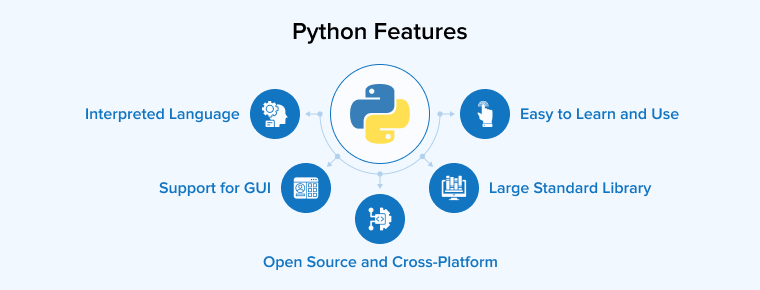
Top features of Python programming language are as discussed below:
6.1 Interpreted Language
Python is an interpreted language, meaning that its code is executed line by line. Hence, it is an interpreted language. Similar to Java, C, and C++, Python doesn’t require code compiling. This makes code debugging easy. Python’s source code is transformed into a form called bytecode.
6.2 Open Source and Cross-Platform
You can download the standard distribution of Python from its official website without any restrictions or any kind of payment. Its source code is also available for free as it is an open-source language. You only have to obtain the necessary license to use Python. It is also a highly-compatible programming language. Python supports various platforms including Android, Windows, and Linux.
6.3 Easy to Learn and Use
Compared to other languages, Python is easy to use. Its syntax is quite similar to the English language, which makes it more accessible. Python doesn’t even use curly brackets or semicolons to define code blocks. It is an ideal option for beginners.
6.4 Large Standard Library
One of the popular features of Python is its extensive standard library. This huge library is packed with numerous modules and packages providing common and advanced functionalities for your product. Thanks to these pre-built modules, developers do not have to write these functionalities which saves their time and increases productivity.
6.5 Support for GUI
The Graphical User Interface is one of the important features of the Python programming language. It allows the users to interact with the software. Python provides multiple toolkits such as JPython, Tkinter, and wxPython which support easy and steadfast development of a GUI.
7. Python Advantages
Use Python in your projects to obtain the advantages mentioned below:
7.1 Portability
Python was designed to be portable. You can run its program on various operating systems without any modification. This makes it easy to deploy Python apps across different platforms and environments.
7.2 Versatility
Python can be used for multiple purposes. This programming language supports both object-oriented and procedural programming. It also offers various third-party packages to extend its capabilities. Developers can use Python for back-end web development and IoT applications as well as in the areas of machine learning and data science.
7.3 Embeddable
You can use Python with any other programming language, allowing developers to enhance existing software. Python allows you to embed its code into other languages and their code into its own. This means you can use Python to add new functionality to existing software written in another programming language such as C++ or Java.
7.4 Productivity
Python’s integration features and control capabilities can significantly boost the developer’s productivity. It is quite concise and typed dynamically. Python is dubbed as a programming language that surpasses even Java in terms of productivity.
8. Python Disadvantages
Some limitations you might face when using Python for your project include:
8.1 Poor Memory Efficiency
One of the major drawbacks of using Python is it consumes a substantial amount of memory because of its adaptability to different kinds of data. As a result, Python is not a good option for memory-sensitive operations.
8.2 Problems with Threading
The presence of a mutex named Global Interpreter Lock in Python programming language allows the execution of only one thread at a time. Therefore, you can’t run multi-threaded code which is slower than single-threaded programs. However, you can run multiprocessing programs instead of multithreaded by using relevant packages to handle different types of data.
8.3 Speed Limitations
Because it is an interpreted programming language, Python code gets line-by-line execution which is helpful in debugging. However, this approach can slow down the overall execution speed and performance.
If you are creating an application with intensive scientific computations or high-frequency trading algorithms where speed is critical, then Python will become a hindrance.
8.4 Harder to Avoid Runtime Errors
Python code isn’t compiled until it’s run. So the errors that would have been easily detected by the compiler are only found during runtime. These errors can vary from syntax errors to problems like trying to add an integer or string them together.
9. Similarities Between PHP and Python
PHP and Python programming languages share the following similarities:
- Free: Both languages are open-source, hence, their code can be used and modified for free.
- Cross-platform: Makes it easy to run their apps on different platforms.
- Easy debugging: Both Python and PHP provide excellent debugging capabilities.
- Community: Both PHP and Python receive active support from a large community.
- Dynamic typing: Both scripting languages support dynamic typing and chaining. They execute the code line-by-line without compilation.
10. PHP vs Python: In-Depth Comparison
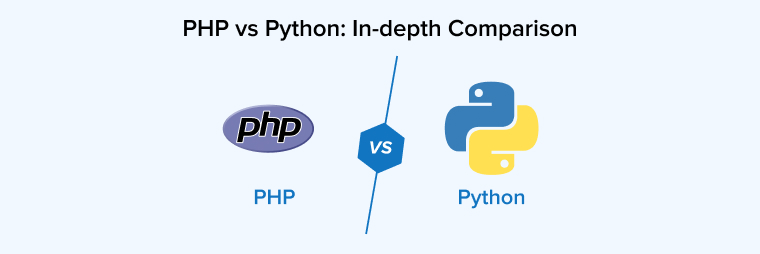
Despite their similarities, PHP and Python are rivals with unique capabilities. Let’s see how each fares against common industry parameters.
10.1 Ease of Installation
You can easily install PHP on any operating system. Also, you can find it on various shared hosting websites worldwide at a minimal fee. Meanwhile installing Python is complicated. MacOS comes with a previous version of Python pre-installed.
However, that version is so outdated, it can’t be used to make any app. To avoid potential issues, it is essential to install the latest version of Python. For Windows users, use a package manager to install Python to avoid any issues. This can mount up some extra work for you especially if you are planning to use the language as a part of a team.
In short, PHP is easier to install on any operating system compared to Python.
10.2 Security
PHP programming language is less secure than Python because its code is more complex and verbose, which can lead to various security vulnerabilities. Meanwhile, Python’s syntax is easy to read which helps write clean code. Python frameworks such as Django and Flask offer various security features. They also help automate many aspects of the development process which eliminates all possibilities of manual errors.

10.3 Performance and Speed
The earlier versions of PHP were slow and took a long time to execute their codes. However, with the efforts of the PHP community, both speed and performance started improving with PHP 7. x and new versions. The new Zend engines in these latest versions of PHP make them 2x faster than their previous versions.
PHP 8.1 is proving 47.10% faster than PHP 8.0.
— Tomzur (@tomzur) February 14, 2022
47.10%.@kinsta latest #PHP benchmarks are live, follow this link 👉 https://t.co/19WJ0m7sm7 pic.twitter.com/goGmA0Vyg7
On the other hand, Python was created to be quick and that too without installing a caching system. When creating or modifying a file, Python converts its code into bytecode. Initially, Python was faster than PHP until the launch of PHP 7. x.
If you are building a simple app where speed doesn’t matter much then you can use either option but in terms of speed and performance, PHP is better.
10.4 Syntax and Readability
The major eye-catching difference between PHP and Python is their syntax and readability. The syntax of PHP is similar to that of Perl and C languages. You can use it easily only if you are familiar with these languages. Otherwise, the PHP syntax seems less clean and more verbose.
Meanwhile, the Python syntax is so clean and elegant that developers often refer to it as beautiful. With an emphasis on simplicity and readability, Python’s code structure enforces consistent formatting. Therefore, in terms of syntax and code readability, Pythons triumph over PHP.
Loving Python's readability! Simple syntax makes complex tasks approachable, even for beginners. Perfect for learning the ropes of programming. pic.twitter.com/u6Re1wFwmk
— Swee_Ladiva (@J_Ladiva) June 4, 2024
10.5 Web Development
PHP has been associated with web development for a long time now. With an extensive ecosystem of PHP frameworks like Laravel, CodeIgniter, and Symfony, it simplifies the process of building web app development. Its server-side scripting and database integration capabilities allow developers to build dynamic websites, CMS, and eCommerce platforms.
Python is a versatile language that can used for web development but it isn’t limited to any specific solution. Leveraging Python frameworks such as Flask and Django, you can develop APIs and web applications efficiently. Thanks to its versatility, you can easily extend Python to various domains like automation, data analysis, AI, and scientific computing.
In the end, both Python and PHP are effective choices for web development. Where Python is useful for building a diverse range of web solutions, while PHP is more suitable for building dynamic platforms.
10.6 Community and Support
When you opt for a programming language, it is important to consider how many people use it and the availability of the associated resources. PHP boasts the support of a vast community with active support, including tutorials, online forums, and other abundant resources.
Regular updates and continuous support from the community help PHP developers resolve their challenges and implement best practices.
On the other hand, Python developers also get support from a large community that contributes to the advancement of the language. This community develops extensive libraries, packages, and modules enhancing the functionality and versatility of Python.
The comprehensive documentation and active online forums provided developers get the necessary assistance in their Python development projects.
10.7 Web Framework Options
Both PHP and Python provide numerous web development frameworks.
Laravel, Symfony, CodeIgniter, Phalcon, and Yii are some of the most popular PHP frameworks. Most of these frameworks ensure greater performance, high scalability, and minimum configuration requirements for building PHP applications.
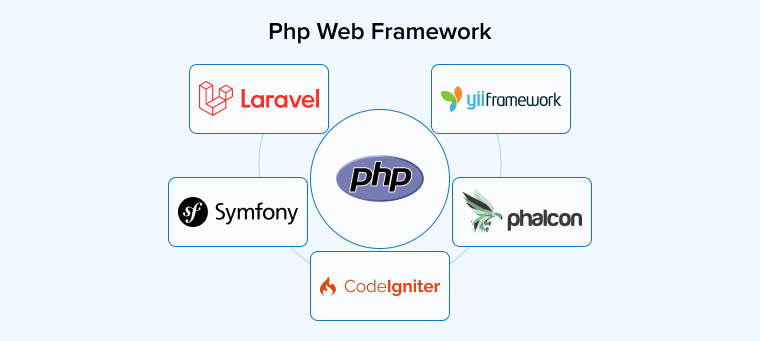
Django, TurboGears, CubicWeb, Pyramid, Flask, Pylons, and Bottle are popular Python frameworks. They provide various customization options and support for data storage, interpreting requests, and producing responses. Many of these web frameworks such as Django focus on automating app development processes to offer better performance and security.
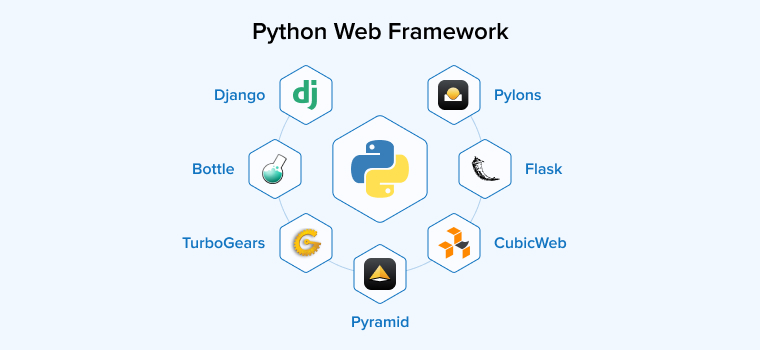
10.8 Environment Management
When it comes to environment management, Python is the best programming language. It comes with the Virtualenv system that allows you to install different versions of a language and move between them.
PHP has limitations, especially since VirtPHP, its alternative is no longer maintained and is already archived. As a result, developers have to use containers for PHP.
10.9 Flexibility, Scalability, and Versatility
In terms of scalability, Python trumps PHP because its AI and ML capabilities help it adapt to new trends and changing requirements. Meanwhile, PHP isn’t versatile enough to adapt to growing demands and the latest trends even if you modify the language significantly.
Python's versatility is mind-blowing! From web development to data analysis and machine learning, it tackles a wide range of projects. One language, endless possibilities! pic.twitter.com/7DwSmMqXAP
— Swee_Ladiva (@J_Ladiva) June 4, 2024
Moreover, the extraordinary library support from Python allows you to use frameworks like Django and Flask to build fast, secure, and highly scalable Python applications. The versatility and scalability are the reasons why many top tech firms including Instagram choose the Django framework. It helps them cater to the requirements of millions of users daily without any difficulty.
10.10 Documentation
Both programming languages have detailed documentation along with online tutorials, courses, discussion boards, and forums.
You can find all PHP documentation on a dedicated website available in over 10 languages. This site also allows developers to leave comments that clarify complex concepts with easy examples. However, there is a drawback. These comments would stick on the page forever. Older comments are displayed first. In case of updates, these old comments can create a lot of confusion.
Python also offers comprehensive documentation for every version with a table of contents, FAQ section, library references, improvements, tutorials, usage, extensions, and more. There is no scope for commenting in Python documentation. However, this also makes it hard for new Python developers to understand complex concepts. Still, Python’s documentation is more organized than PHP documentation.
10.11 Debugging
Developers create components and functions but they have to be ready for potential errors or bugs. That’s why you need a debugger. Now, who’s better at debugging PHP or Python?
Debugging PHP code can be overwhelming and time-consuming but by using PHP debuggers like XDebug, you can speed up debugging and complete it without any hassles.
PDB or Python Debugger is an in-built debugger of Python. In a Python debugger, just press the start button and it will take care of the rest for you.
Both PHP and Python debuggers can be easily integrated with various IDEs like Visual Studio Code and PyCharm.
10.12 Speed to Market
Python helps you quickly finish the project with its third-party offerings including various modules, packages, and libraries. On the other hand, PHP also offers a large range of tools, libraries, and frameworks with pre-packaged features and functionalities. So, PHP also enables you for rapid development.
11. PHP vs Python: Differences at a Glance
Let’s take a glance at the comparison between PHP and Python based on various factors:
| Parameters | PHP | Python |
|---|---|---|
| Ease of learning | Challenging for beginners to learn | Easy to learn |
| Ease of installation | Easy to install | Installation can be straightforward |
| Security | Due to old coding performance, PHP is less secure than Python. Improvements have been made in recent versions | Python frameworks provide built-in security features. So, it’s more secure than PHP. Require proper implementation to be effective |
| Speed and Performance | The latest versions are faster than Python | Slower than PHP. |
| Syntax and readability | PHP has uncommon syntax. Hence it is difficult to read. | Easy to read because its syntax is similar to the English language. |
| Web development | Server-side scripting | General purpose |
| Community and support | Excellent Community support | Excellent Community support |
| Library support | Supports fewer libraries than Python, and has Packagist as a single notable library. | Well-developed library support to build all types of applications. |
| Web framework Options | Laravel, Symfony, and CodeIgniter. | Django, Flask, and Pyramid. |
| Environment management | VirtPHP used to handle environments but it’s archived. Docker or Composer are being used for managing PHP environments | Virtualenv from Python is one of the best environment management systems. |
| Database connectivity | PHP has robust support for several databases. | Allows you to connect with over 20 databases |
| Documentation | Excellent documentations | Excellent documentations |
| Debugging | PHP debugging is slower compared to Python. | Python debugging is faster and offers a better experience than PHP. |
12. When to Choose Python?
Python is one of the most popular languages preferred by developers for the following instances:
- Rapid prototyping
- For developing solutions based on AI, data science, and advanced computing
- For scripting and automation
- To build cross-platform applications
13. When to Choose PHP?
You can choose PHP in your web development projects for the following:
- To create web content management systems
- To design dynamic web pages
- For building scalable eCommerce platforms
- For developing apps that can integrate with multiple databases
14. Conclusion
The detailed comparison between PHP and Python provided in this article was intended to help you make an informed decision when picking a tech stack for your upcoming web development projects. In some aspects PHP is better and in others, Python.
PHP is a scripting language well-suited for developing dynamic websites and applications whereas Python is a high-level programming language ideal for building advanced tech-savvy solutions. You can go with either of them if you are building a simple app with less complexities.
Pick an option that seems capable of fulfilling your project requirements with great efficiency.
FAQs
What is better, PHP or Python?
For a long time now, developers have preferred to use PHP for web development. But Python seems better than PHP in many instances as it offers greater flexibility, speed, scalability, and security.
Can Python replace PHP?
PHP cannot help you build modern web solutions based on data science and AI technologies. To make them, you have to replace PHP with Python.
Can Python do everything PHP can?
PHP and Python both have mature ecosystems. So, theoretically, they can be used for every case of web development. However, each language has unique capabilities which help them solve specific problems. So no, Python can’t do everything that PHP does.


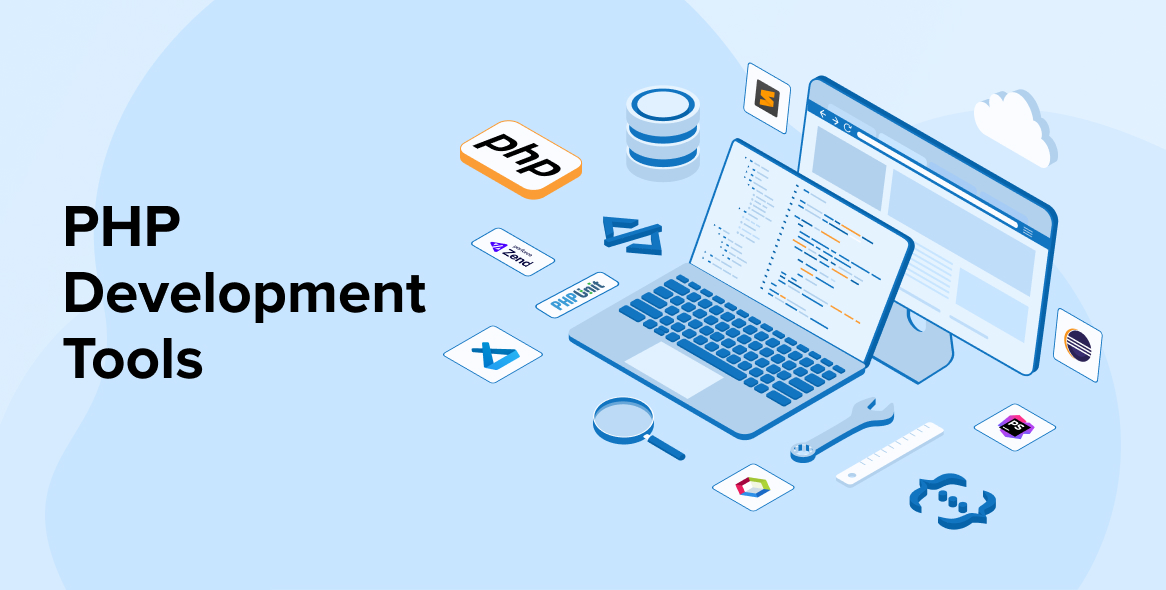
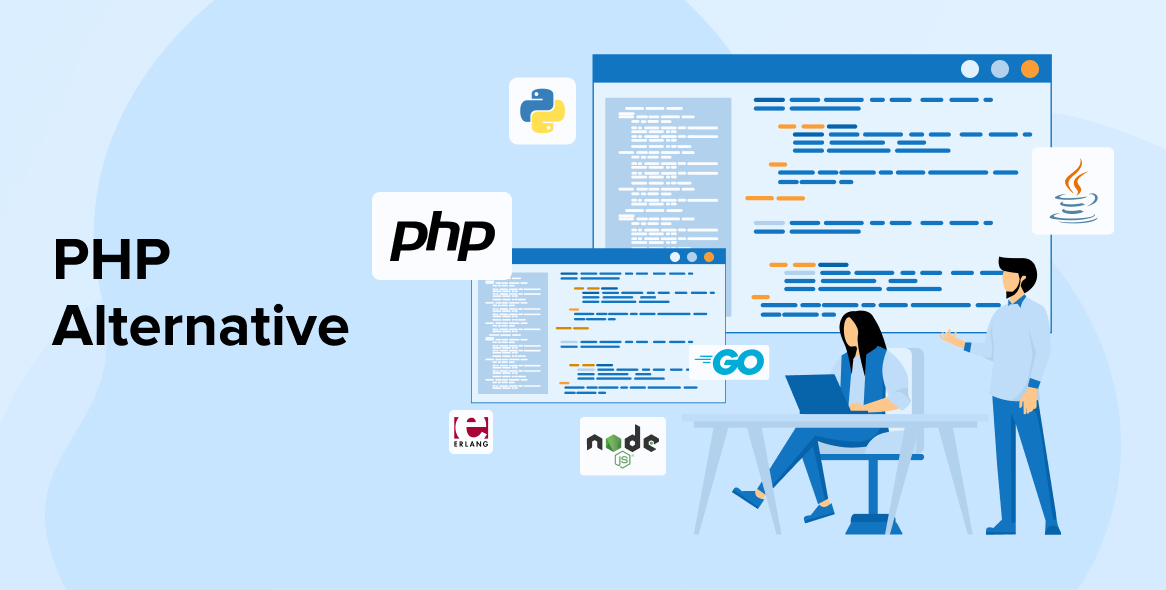
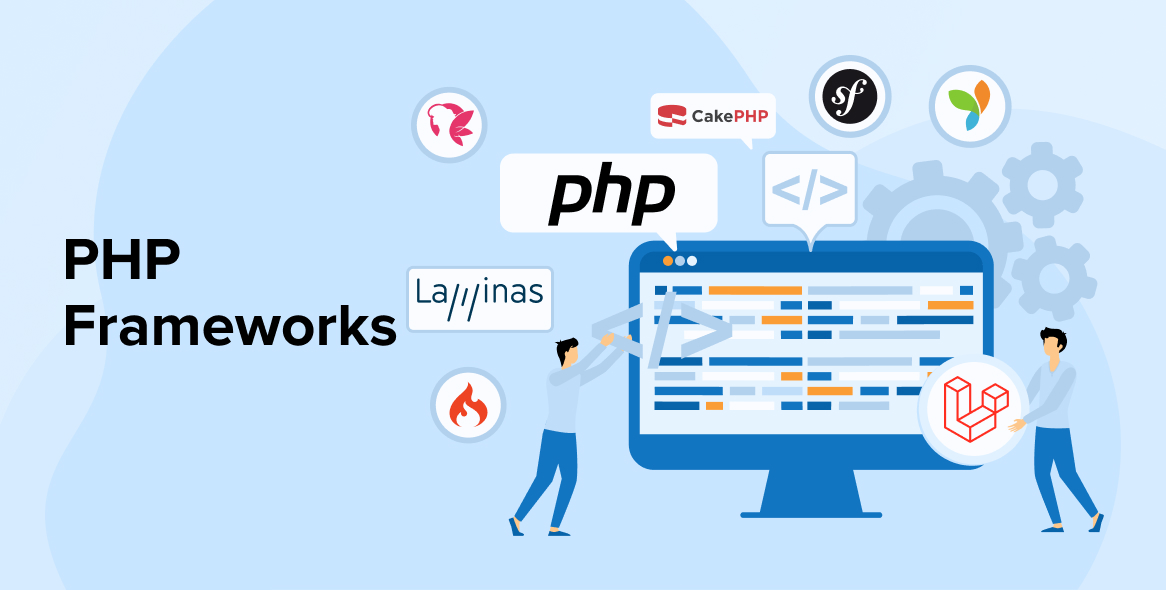

Comments
Leave a message...